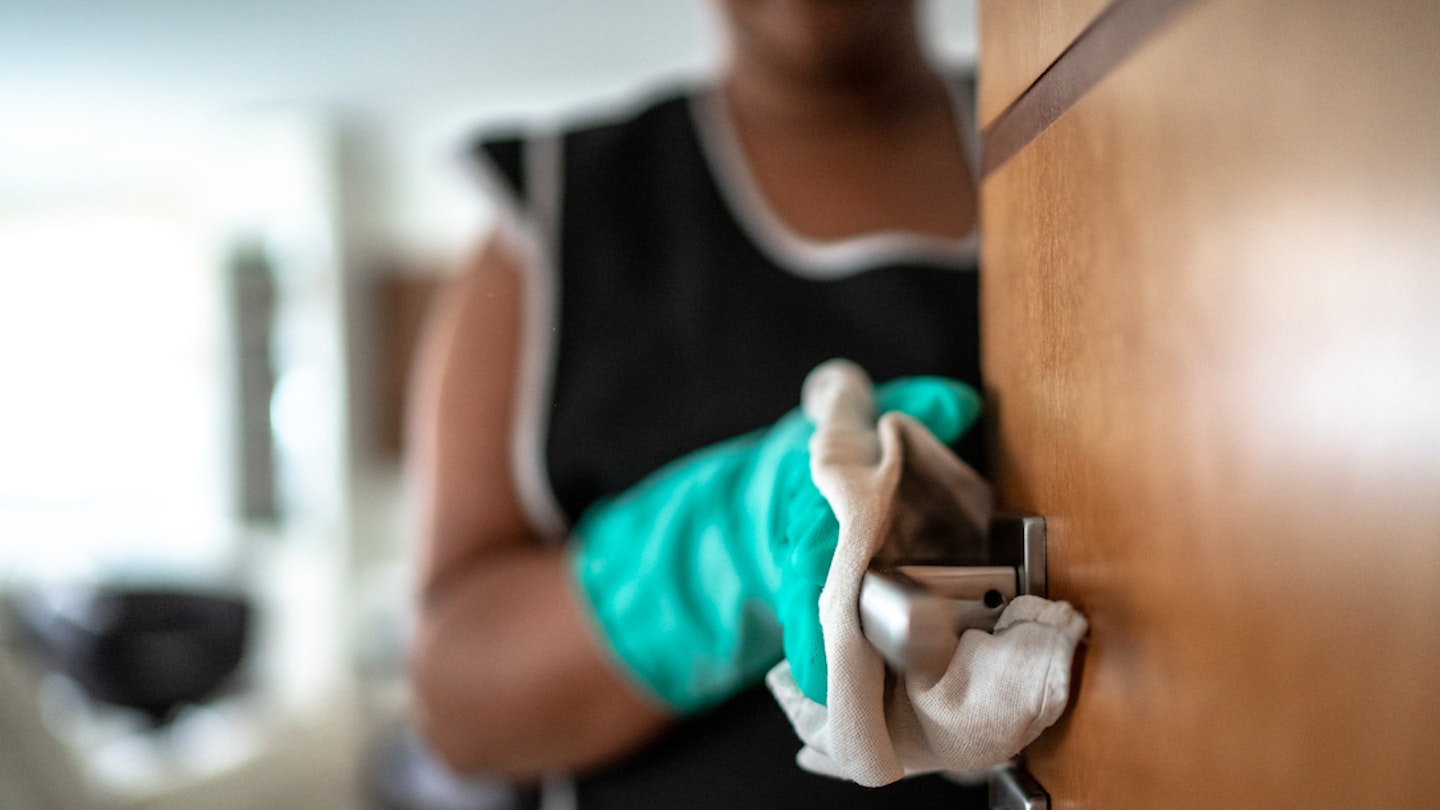This week, Boris Johnson encouraged anyone who could not work from home to begin working again. After weeks of lockdown, thousands of people in jobs including food production, construction, cleaning and childcare were told to return to work just one week after it was reported that the UK had the largest death toll from Covid-19 in the whole of Europe.
Soon afterwards, 17 Labour MPs backed a letter by Unite the Union, which accused the Tory government of declaring a class war by expecting working class people to go to work while the middle class are safe working from their homes.
And one specific element of this argument has taken over Twitter this week, a debate that incorporates not just class but gender too: the ethics of cleaners being asked to return to work. As with every Twitter argument, it began with a seemingly simple statement.
‘If you are a middle-class professional who has a cleaner, you should be paying them their wages as normal and letting them stay at home,’ journalist Owen Jones tweeted this week. ‘If you ask them to come and clean your home, you are a monumentally selfish person and that's really all there is to it.’
Amassing over 34,000 likes, the tweet received support but there was a furious response from some. ‘I don't have more time in lockdown, I have less because I'm sharing my workspace with two teens and another adult,’ replied fellow journalist Sarah Ditum. ‘There's more dirt, because of the more people. The cleaning is KILLING me and this is a bad take.’
And so ensued a Twitter row, with some arguing that because the burden of cleaning falls typically on women and they are likely to be dealing with that more now than ever, they shouldn’t be shamed for asking professional cleaners to return to work. Others questioned why such women could not have conversations to ensure cleaning responsibilities were shared equally in the house.
It’s an especially important conversation to have now, when the safety of returning to work is so paramount and cleaners are considered among the group of elementary workers that have had the highest death rate because of Covid-19 (according to ONS figures).
But how do the women who are potentially being put at risk by returning to work feel?
I’ll have to go back if I want to keep my job but I’m really anxious about it.
‘I don’t feel safe going back to work at all right now,’ says Abigail, who cleans train stations for a living. ‘I was working for three weeks after lockdown was announced because we were considered “key workers” and I wasn’t given any safety guidelines to follow and didn’t have any PPE. I live at home with my mum and nan so I was constantly terrified that I was putting them at risk. Now I’ll have to go back if I want to keep my job but I’m really anxious about it.’
Similarly, Louise, who is a self-employed cleaner at Well Polished, was nervous returning to her work as a domestic cleaner but with only her husband’s income to rely on she has started to. ‘Within the first 24 hours of lockdown my job and my income vanished overnight,’ she says. ‘It has only just started to trickle back, thankfully. At first, I felt scared about the prospect of going into people’s safe havens. But once fully masked and gloved up, adhering to two metres social distancing, I feel fine and confident.’
For some cleaners, clients have taken up Jones’s suggestion to continue paying without the service, which Lorraine, who is also self-employed at Well Polished, thinks is only right. ‘I’ve been a cleaner for 34 years now and I’ve had no work during lockdown,’ she says. ‘Only one of my clients has carried on paying me, which I’m extremely grateful for, but I think all clients should have paid or even paid half if they can afford to. I have had no income and in all my years as a cleaner, I have never let my clients down.’
Others, like Sheryl – who has been a cleaner for 9 years – understand their clients' predicament but with no clients continuing to pay her during lockdown, she was forced to seek other riskier options such as cleaning an ambulance station. ‘I have had moments when I have been far too close to Covid-19 for comfort at the beginning of the lockdown,’ she explains. ‘I have come home a few times and cried in the shower at how dramatically everyone's life has changed.’
Ultimately though, when it comes to returning to work now, most of the cleaners Grazia spoke to were keen to go back to work as long as their clients follow government guidance. ‘I don't feel half as vulnerable as I did when it all began,’ Sheryl continues. ‘I have been more self-conscious when going into the supermarkets and petrol stations and the same strict rules apply. As in, clothes straight in the wash and shower after a clean. I also change my uniform in between jobs.’
Read More:
Coronavirus: What Are My Rights If My Employer Is Making Me Go To Work Despite The Lockdown?
Coronavirus And Childcare: What Are Your Rights Now That Schools And Nurseries Are Closed?
